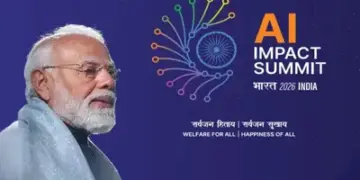The recent resolution passed by the Legislative Assembly of Jammu and Kashmir, can be understood in the ‘Political Action’ of Michael Walzer, an American Jewish writer and public intellectual- ‘A civilised response of a cultural and ethnic group in a milieu of violence and a set of political beliefs that hegemonise every other thing’.
Although unassertive, it was a dignified action to the August 5, 2019 stripping of Kashmir’s semi-autonomous governing status. One ought to be cognisant of the displacement of the ideational configuration of India by an “ethno religious brand of nationalism”, to perceive this political and democratic response. The repositioning of Indian nationalism to quote Christophe Jaffrelot, French political scientist and Indologist, plays politics whose USP is “defend the majority of the sons of the soil only”.
We may have revert to history to further appreciate this response. The purpose of ‘history is to illuminate the road of mankind towards high culture and civilisation’. But populations world over have religiously been fed with kings and now the state’s version of history and politics. The practice of such subjective feeding continues in our wretchedly poor South Asian region as well.
Exactly 103 years ago the Britain sent a seven member commission headed by Sir John Simon with a mandate to study constitutional reform in British India. In reply different political parties including Congress, Hindu Mahasabha and others constituted a committee under Motilal Nehru and prepared the Nehru Report. It proposed a federal form of government with residuary powers vested in the centre. The report detested separate electorate for Muslims and other minorities, which ultimately led to the charting out of the 14 points of Mohammad Ali Jinnah.
Jinnah inferred that the Nehru report would subdue Muslims. Historians call his points as parting of way for the years to follow. Jinnah stressed that his formula was the viable means to ensure the rights of his political constituency. His report called for autonomy for all the provinces. Sought one third representation for Muslims in the Central Legislature. It also suggested that no changes be made in the constitution without the consent of the provinces and that the issues concerning Muslims could be amended only after their overwhelming approval.
Unscrupulous politics became the deciding factors’ in the subsequent years of the freedom movement leading to partition.
India which chose secularism after independence started experiencing a tectonic shift in politics from 1989. This was the year when BJP passed its Palampur resolution, considered the ‘Hindu Right’s tryst’ with an ‘ethno-religious brand of nationalism’ via Ram temple. With its own set of beliefs the ideology took command of the Indian state in 2014.
Interestingly it was the year which coincides with the militant uprising in Kashmir. A narrative of “Jihad” was created here to mobilise public support. Its narrative of “liberation” captivated the imagination of the people and its force trampled everything that came in its way. The unrelenting violence has so far consumed thousands of non-combatants besides militants and soldiers.
Although militancy had ebbed out but in August 2019, the symbolic autonomy and exclusive land rights of the local population were ended by the BJP led government at the centre. The party on the political right thus fulfilled the promise of the far right groups in the country that called for complete assimilation of the Jammu and Kashmir with rest of India. The constitutional arrangement of autonomy reached out after prolonged negotiations from 1947 to 1954 between the dominion of India and the princely state of Jammu and Kashmir was thrown to the trash. The region was then forced into a state political deactivation.
Kudos to PM Modi for holding free and fair elections for the Legislative Assembly in the Union territory this year in September October. The National Conference which had pitched high on the restoration of autonomy made a sterling come back. Its identity politics thus paid rich dividends to the Party which was on a downward spiral for the past 22 years and was fast losing its relevance on the political turf of Jammu and Kashmir. It defeated BJP and other parties seen as its proxies. It was successful in capitalising on the emotional quotient of the people. Conscious of the ‘historical betrayals’ of NC they again trusted it as an agency and a carrier of their point of view.
Its November 06 meek Assembly resolution does not hold any strength in India’s state structure. Many states after the passage of the controversial citizenship Act by the parliament of India passed their own resolutions. But under law all such resolutions are considered only as opinions of a region or a state and are unenforceable.
However, the J&K Assembly’s resolution holds significance in a different way. It is a graceful statement of a people calling for political propriety, closure of extreme forms of self-expression and authority. The Indian philosophy on ahamkara is also in line with this expression that says, when the soul, individual or collective, takes a domineering form it harms the self and the surroundings.






